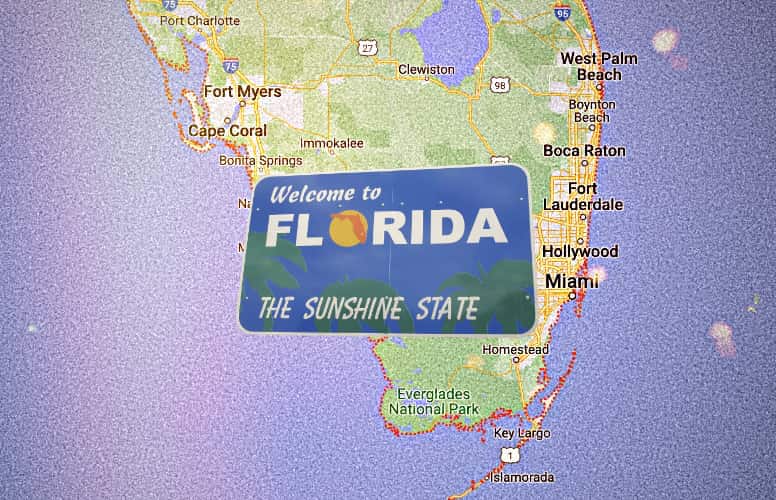Florida: More rate, lower commissions, tighter guidelines. Exposure management continues

While the general opinion in the insurance and reinsurance industry is that the outlook for the Florida marketplace is improved and the reforms, while taking time to bed in, will deliver benefits to insurers, the carriers operating there continue on their path of exposure management, by any means necessary.
As we explained some months back, ahead of the reinsurance renewals there, Florida’s property insurance carriers were seen to take some quite dramatic steps to lower their exposure, through the restriction of coverage, or availability of their policies.
Since then, the Florida reinsurance renewal has come and gone, with most citing a more stable environment, and carriers largely able to buy sufficient cover to sustain their businesses, even though reinsurers were in the driving seat.
At the same time, reports have continued to emerge of carriers pulling-back on Florida, either by simply slashing business there, or through more granular exposure management measures.
We’ve seen Farmers Insurance cited as pulling back from Florida to manage its exposure there, and AAA Insurance using non-renewals to manage cat risk in the state.
Meanwhile, analysts at ALIRT said Florida is at an inflection point, albeit a long way off becoming a more normal property insurance market, but major player Universal said the reforms are driving a better environment, while Slide CEO Bruce Lucas told us he feels the reforms have radically changed the Florida market environment for the better.
But still, carriers in Florida are taking exposure management actions in real-time, continuing to manage the costs of their inwards books, versus outwards reinsurance spend and expected losses, pruning exposure through a range of actions.
One focus remains on rate increases and with Citizens requesting 11%, but with a long way to catch-up to the private market in some cases, the private carriers are also pushing for more.
Case in point managing general underwriter SageSure, which is applying state wide average rate increases of +7.5% for its Wilshire Insurance Company HO3 and HO5 homeowners rates, as well as for HO3 under its SureChoice Underwriters Reciprocal Exchange, we’ve learned.
SageSure said it “understands the challenges posed by the insurance market in Florida” but wants to “ensure the long-term stability” of its commitment to agents and customers, with these rate increases necessary.
The company added that the rate increases will enable it to “continue to provide strong, steady capacity in Florida.”
Meanwhile, carrier People’s Trust Insurance Company has taken a commissions route, telling its agents in Florida, “Due to the continued increase in reinsurance, we have made the difficult choice to implement a commission adjustment for renewal business only.”
Agency-specific renewal commission decreases of between 1-5 percentage points are being actioned, with only renewal business affected, as new business commissions are unchanged.
It’s another lever available to carriers as they look to offset the higher costs of doing property insurance business in Florida, including the higher reinsurance costs they’ve been paying.
In a brighter sign, People’s Trust also said it will be reopening binding for new HO3 homeowner’s policies, including limited capacity being available in Palm Beach County zip codes.
Finally, on underwriting guidelines, we continue to see Florida focused insurance carriers honing coverage to manage exposure in the state.
Here, the latest case we’ve seen is Trusted Resource Underwriters Exchange (TRUE), which is a reciprocal member company of the Homesite carrier group.
TRUE is updating its underwriting guidelines as a way to “actively apply the right level of risk management in an effort to diversify the book,” the company said.
Applying to new business only, TRUE is stopping writing business in some zip codes until after the hurricane season, while also increasing the minimum years of construction it will write in some areas as well.
These moves by carriers are a continuation of efforts to manage exposure versus the costs of doing property insurance business in Florida, especially at a time of far higher reinsurance pricing.
We suspect these moves will continue, only perhaps relaxing once there if tangible evidence of the legislative reforms having a significant effect, with reinsurance pricing responding in accordance to that.
Read all of our news and analysis on the Florida insurance and reinsurance market.






